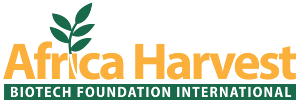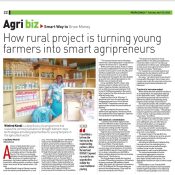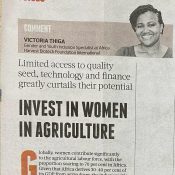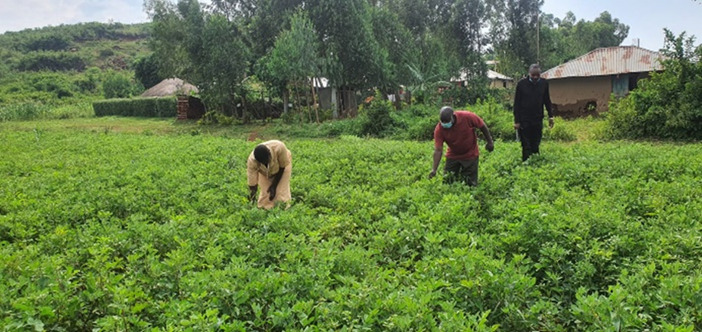
Agrifi Project Supports Streamlining Of Local Groundnut Value Chains In Busia And Siaya Counties.
The project titled “Integrating 2000 smallholder Groundnut producers in Busia and Siaya into Jetlak Foods Limited’s (JFL) Supply chain was funded through the 3rd Call for Concepts and Proposals done by the AgriFI Kenya Challenge Fund. Implementation commenced in February 2021 and is planned to end in Dec 2022. The project is funded by the EU (European Union) and Slovak Aid through the AgriFI Kenya Challenge Fund with Self Help Africa as the grant manager. Jetlak Foods Limited is the main grantee SME while Africa Harvest Biotech Foundation International (Africa Harvest) is the lead technical implementation partner in the project.
The partners are working to close the yield gap by promoting adoption of improved varieties that meet end-user demand and address key challenges including access to quality seed and markets while reducing the cost associated with shelling, which farmers say is very high. They are also working to streamline the groundnut value chain in Busia and Siaya Counties by enhancing production, productivity, postharvest management, and aggregation interventions for improved incomes for the target 2000 households and provide JFL with an alternative and competitive local supply chain for their quality Groundnut needs. Quality assurance is also given emphasis with the use of aflasafe, two weeks before the crop flowers, to help control incidence of aflatoxin at the production phase.
“Njugu Karanga” as they are fondly referred to in Kenya, are mainly grown in western Kenya by small scale farmers both for food and sale. These areas have a tropical climate suitable for farming. The implementation has enabled the farmers to understand the cycle and how they can be able to fully exploit the seasons and get maximum harvest from their farms.
The project is promoting and scaling the adoption of improved varieities like ICGV 12991, ICGV 90704 (Mwangaza) CG7, Valencia Red and ICGV 80703 (Ndovu) which have the potential to increase productivity from 2 bags to between 7 and 10 bags per acre.
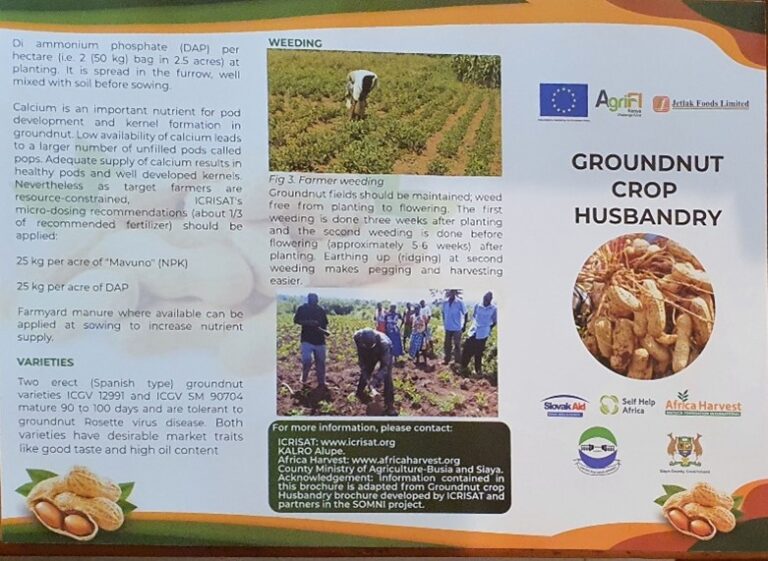
Many challenges experienced by the farmers are keeping yields on the continent low. Farmers lack access to quality inputs that farmers in developed countries have utilized for decades, from quality seeds and crop protection inputs to the right type of fertilizer for their undernourished soils. Another challenge faced by the farmers is the link to value chain marketing, exposing farmers to middlemen with exploitative and predatory pricing. Africa Harvest in collaboration with Jetlak through the EU funding has been able to get ready markets for the farmers.
Even though the crop can be both rain-fed and irrigated, farmers should plant as soon as there is adequate moisture in the ground to ensure good germination. In general, groundnuts are planted between February and April during the first season and in early August for the second season. Planting in the first two weeks after the onset of rains is considered suitable. Planting early in the season helps to improve yields and seed quality. The project has worked to bring about varieties for long and short duration. Long duration varieties should only be planted with the first rains in the first season. Short duration varieties can be planted in either season. The area depends mostly on rain-fed agriculture.
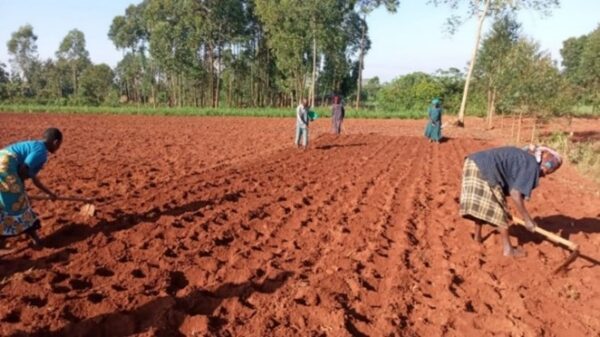
Meet project participants – Ms. Elizabeth Sialo
Ms. Elizabeth Sialo who hails from Poye Village in Central Alego Sub-County, Alego Usonga has been doing small scale farming for the common crops like maize and beans on her farm. She abandoned her norm to grow groundnuts which are easier to produce than maize and beans, with her goal being to transition to small scale commercial farming. She was among the first project participants started farming two years ago, when the project commenced operations in the area.

Her first harvest was for home consumption. After her first harvest, she decided to increase the landholding from ¼ acre to 1 acre to take advantage of the ready market through Jetlak Foods Limited. At first, she made a big loss. She didn’t harvest much due to diseases and unclear understanding of commercial farming. But she didn’t give up. She went at it with the lessons she had learnt from the losses. Now Elizabeth has just made her first good harvest and is excited about the possibilities she can achieve with the next season. “I have learnt that farming and producing groundnuts requires hard work, determination and listening to our agricultural officers. Now I know the importance of understanding soil propagation. There is money with farming, but it comes with working diligently. I plan to increase acreage for the next season, as there is a ready market, and I now know better.”
From her 1/4 acre, she was able to harvest 600 kilograms (6 bags of 100kgs each) of groundnuts. She now looks forward to passing her knowledge to the other farmers and learning more as she ventures into bigger scale farming.
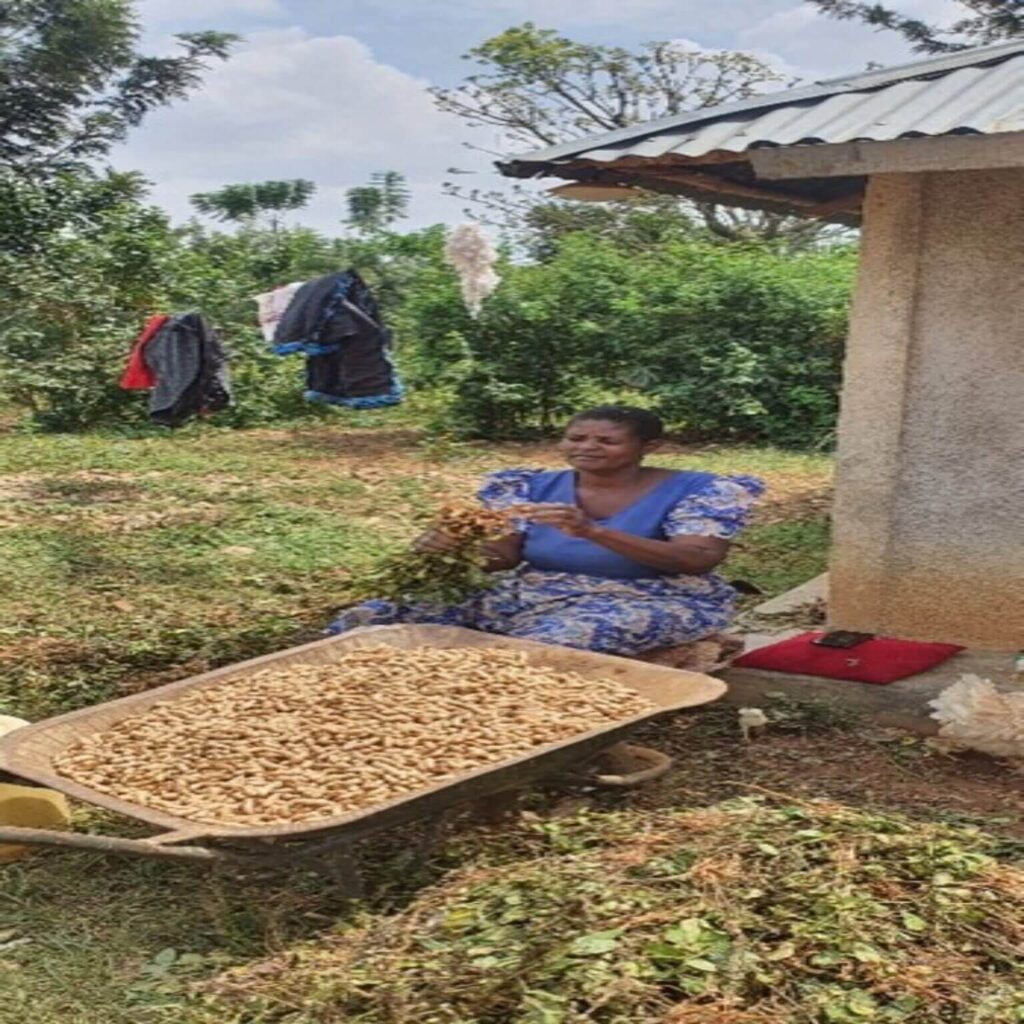
Most farmers are now embracing high-value crops like groundnuts due to challenges faced with unreliable rains and low production and productivity of crops like Maize and beans. Groundnuts are an excellent source of cooking oil, animal feed, staple food and can provide a valuable source of proteins, energy, fats, and minerals.
The project is implemented in partnership with the Sub-County Agriculture offices in Butula, Alego-Usonga and Gem Sub-Counties, the Ward extensions officers in Kingandole, Elugulu and Marachi Central in Butula Sub-County, Busia County and, Central alego and Yala Township wards in Siaya County. Other partners include Koppert Biological Services Limited who supply and train farmers on use of Aflasafe and Blossom Markets Development Limited who supply quality seeds used in production.
